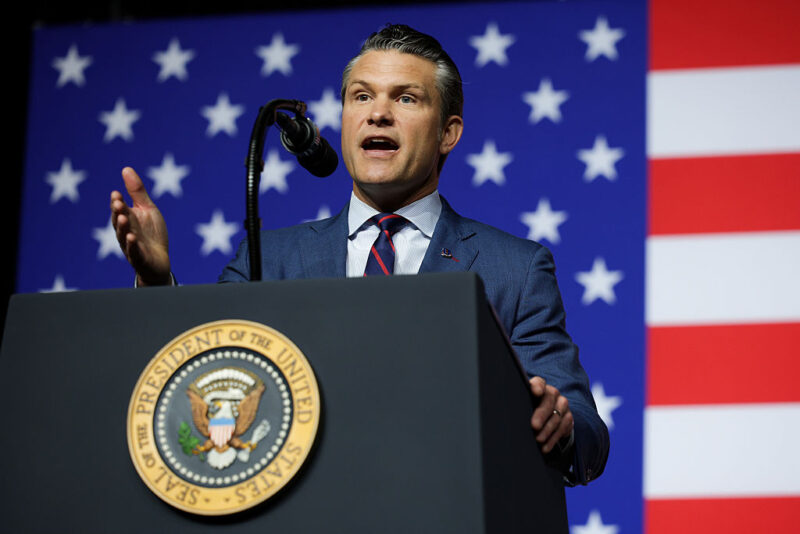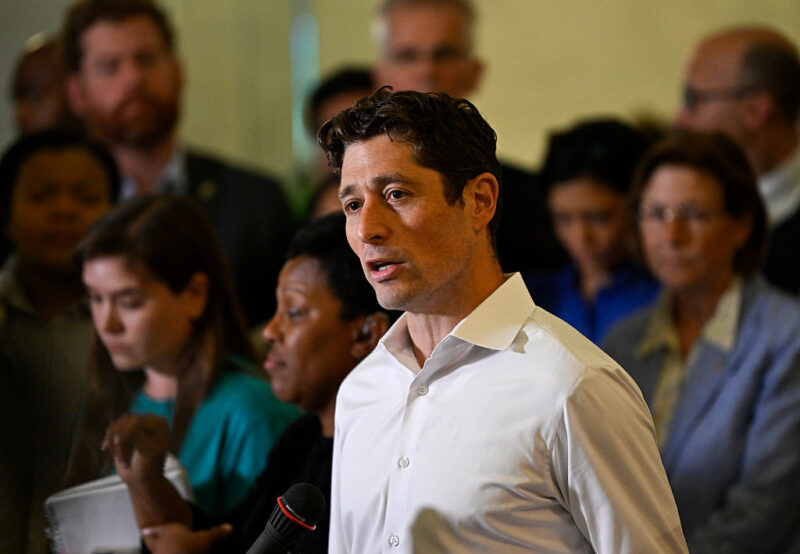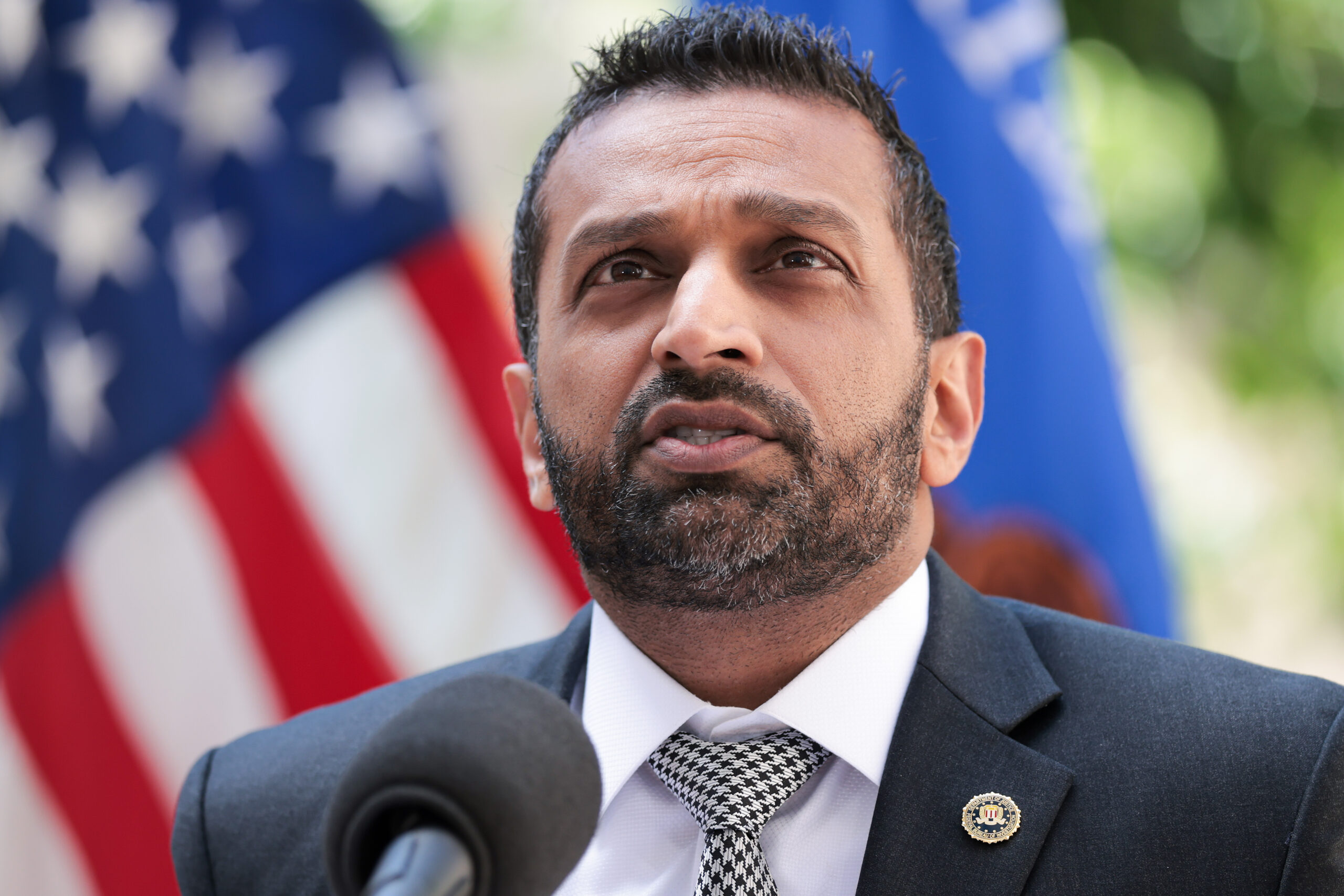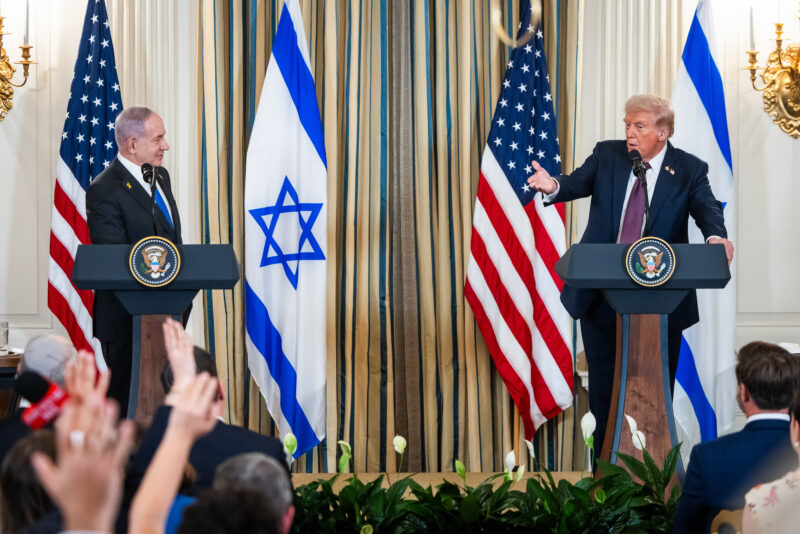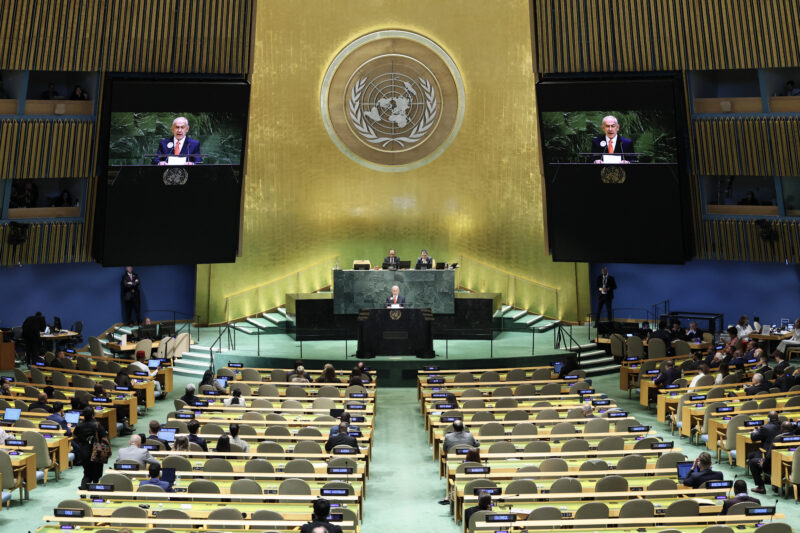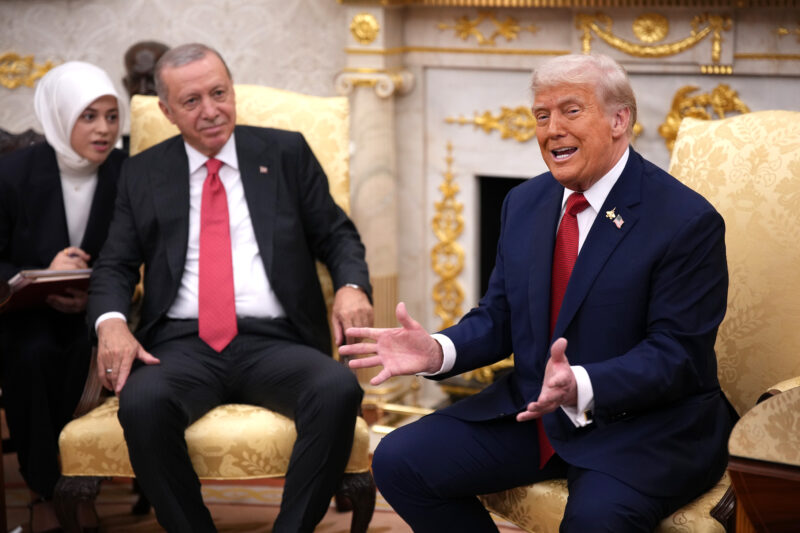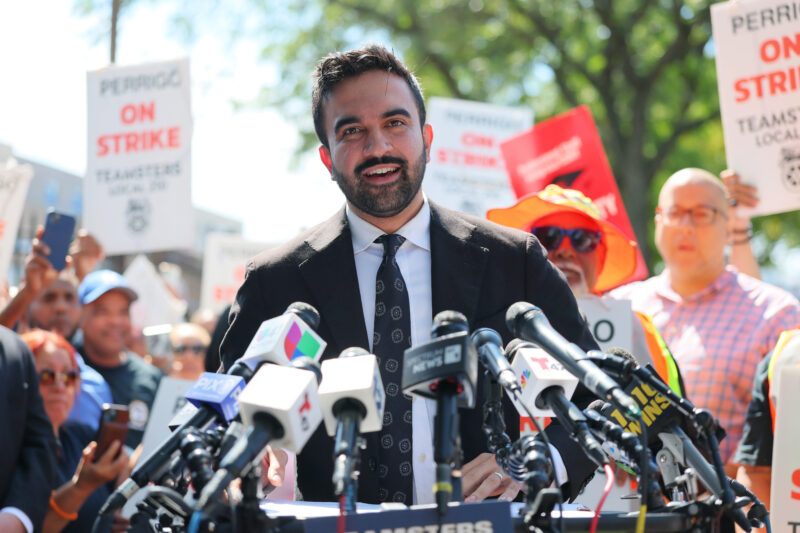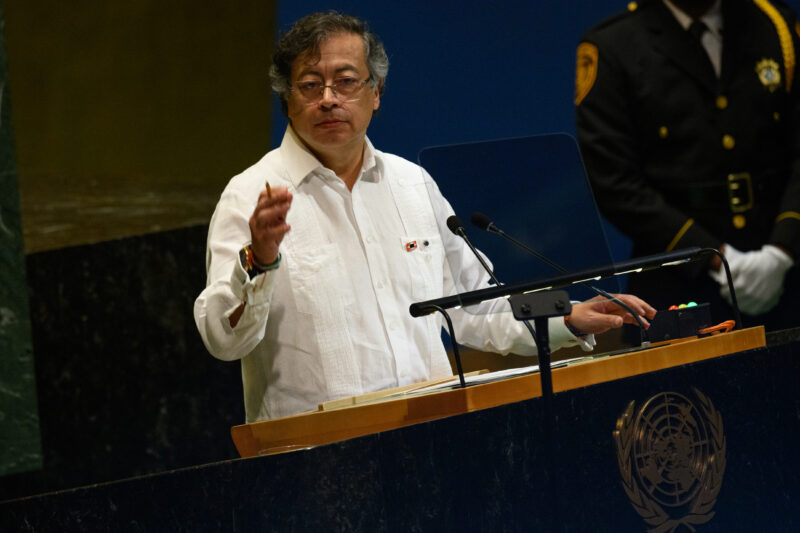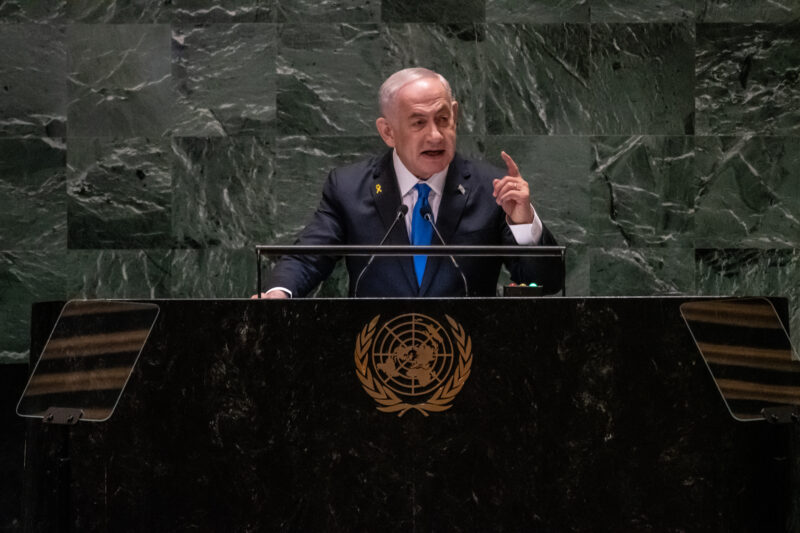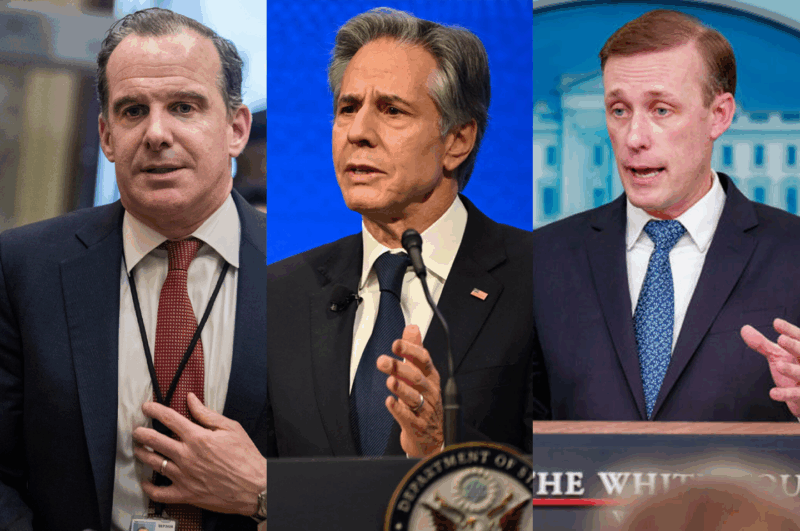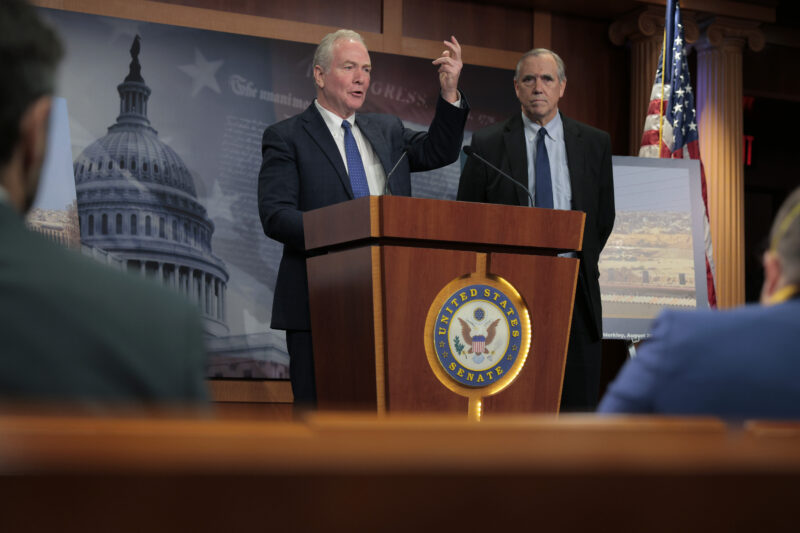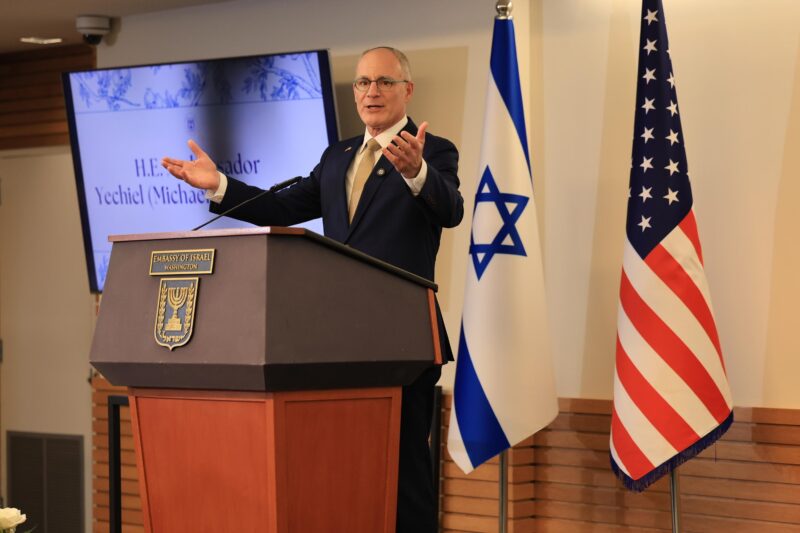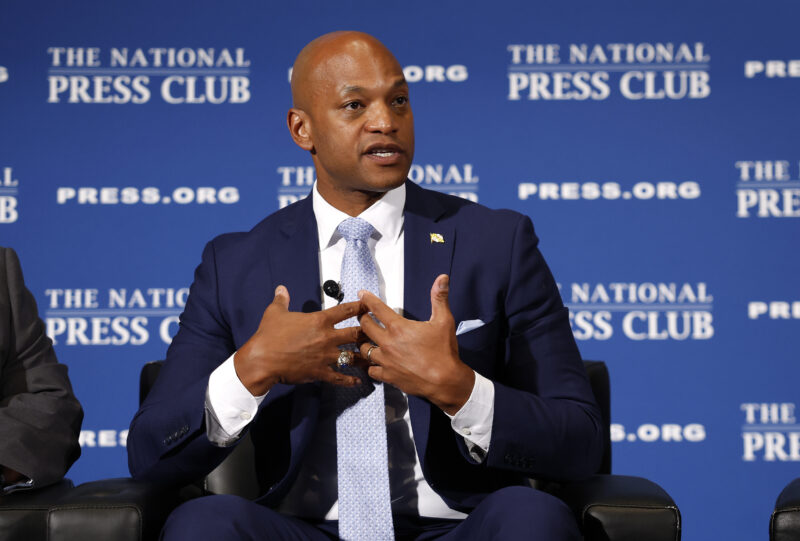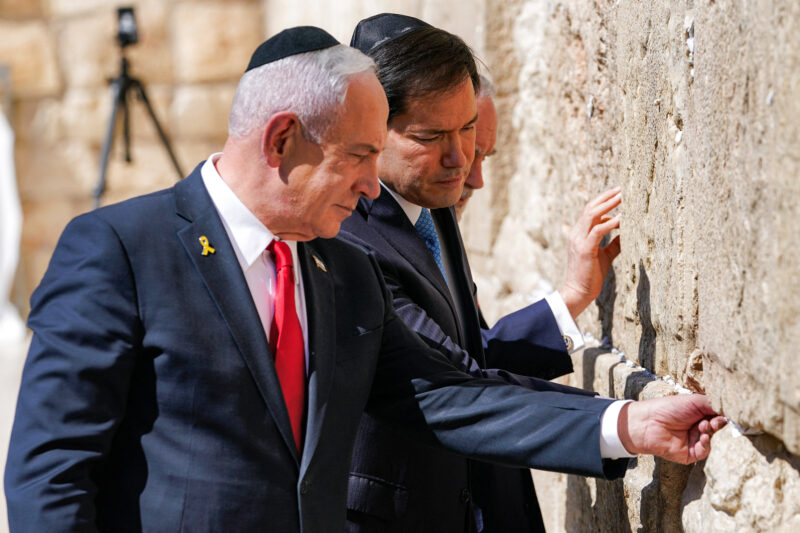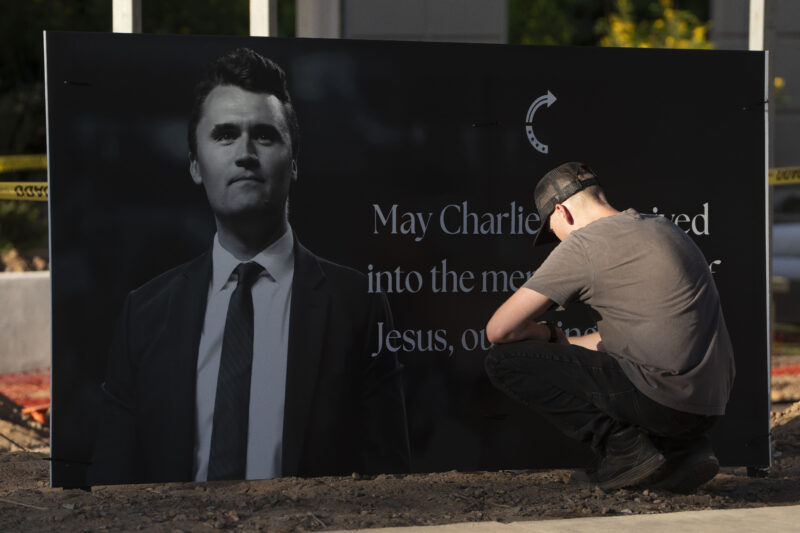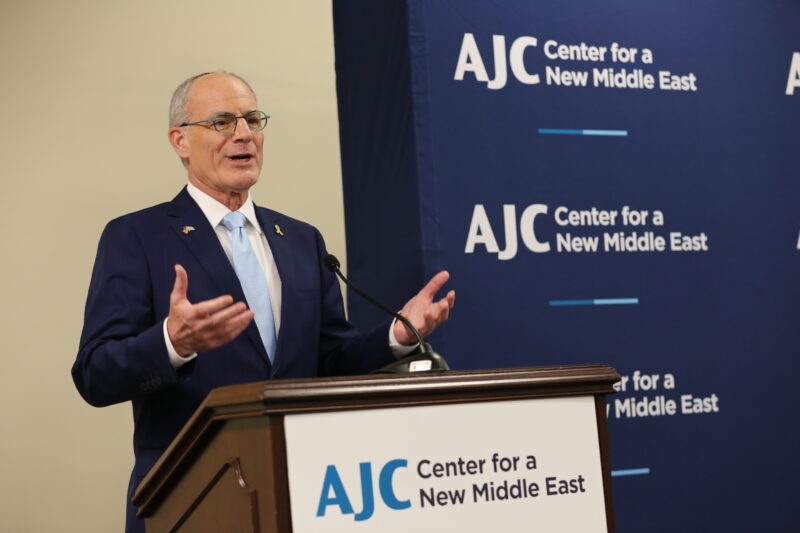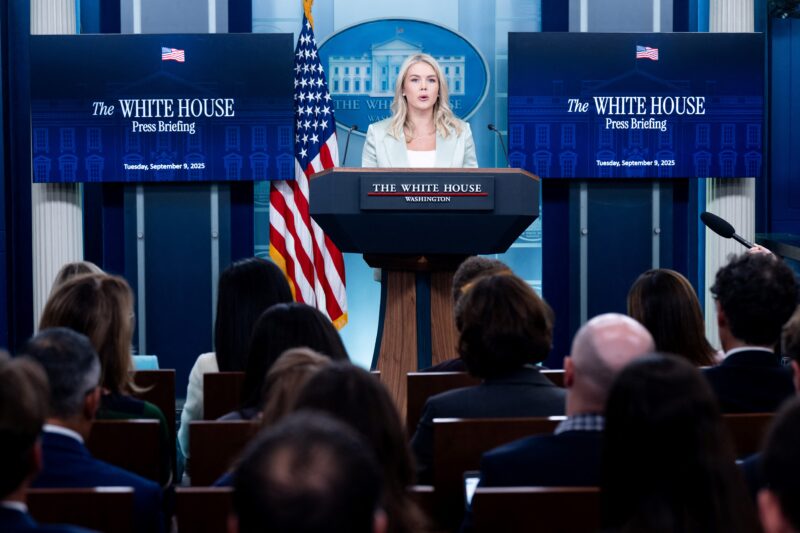The committee also debated the U.S. relationship with Turkey and the future of UNRWA
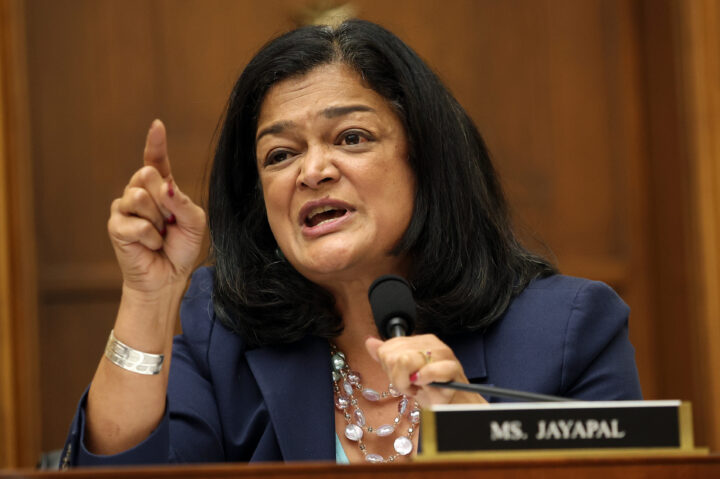
Win McNamee/Getty Images
U.S. Rep. Pramila Jayapal (D-WA) questions Federal Bureau of Investigation Director Kash Patel during a House Judiciary Committee hearing in the Rayburn House Office Building on September 17, 2025 in Washington, DC.
The House Foreign Affairs Committee, during a marathon markup of legislation to reform and reorganize the State Department, resoundingly rejected amendments seeking to condition U.S. aid to Israel on a bipartisan basis.
The committee also engaged in vigorous debate over the U.S. relationship with Turkey and the future of the United Nations Relief and Works Agency. The markup began Monday morning and did not end until early Tuesday evening.
By two votes of 45-5, the committee rejected a pair of amendments by Rep. Pramila Jayapal (D-WA) that would have added new conditions to $1 billion of the $3.3 billion in direct military funding the U.S. provides to Israel each year.
Jayapal and Reps. Joaquin Castro (D-TX), Sara Jacobs (D-CA), Jonathan Jackson (D-IL) and Madeline Dean (D-PA) voted in favor of the amendments.
The first of the two amendments would have conditioned aid to Israel on ending settlement expansion and illegal settlements; stopping plans to annex portions of the West Bank; holding accountable individuals involved in settler violence; holding Israeli security forces accountable for “grave human rights violations”; cooperating with U.S.-led investigations into the killings of U.S. citizens in the West Bank and providing compensation to victims; not targeting “educational, religious, agricultural and cultural sites”; allowing humanitarian aid workers and journalists to enter and travel throughout Gaza; and implementing reforms to protect “freedoms of expression, association and peaceful assembly” in Israel and the Palestinian territories.
The second amendment was more narrow, maintaining only the conditions relating to violence against U.S. citizens.
Jayapal’s amendments were modeled in part on human rights conditions Congress previously applied to U.S. aid to Egypt — though those conditions could be, and consistently were, waived by the State Department for most of the funds. The Jayapal amendments contained no waiver provision.
The committee voted in favor of an amendment, led by Rep. Mike Lawler (R-NY), that would require the administration to notify Congress of any decision to delay or withhold an arms transfer to Israel, and provide a path for Congress to override such a delay.
Democratic Reps. Jared Moskowitz (D-FL) and George Latimer (D-NY) voted with most Republicans in favor of the amendment, and Rep. Scott Perry (R-PA) voted with most Democrats against it.
An amendment by Castro that would have prohibited any U.S. foreign military funding to be used to purchase weapons outside the United States after 2029 failed by a 25-24 vote. Lawler voted with Democrats in favor of the amendment.
The provision was designed to prevent Israel from using U.S. funding to purchase weapons from its own defense industry under the next memorandum of understanding with the United States. Such domestic procurement funding is being phased out over the course of the current MOU.
The committee also debated a series of measures relating to the strained U.S.-Turkey relationship and Turkish hostility toward Israel, approving two and rejecting a third.
By a 35-13 bipartisan vote, the committee approved an amendment by Rep. Keith Self (R-TX) mandating that the administration consider the impact of any U.S. arms sales to Turkey on Israel’s Qualitative Military Edge, a condition that by law is applied to other Middle East nations.
Reps. Joe Wilson (R-SC), Ronny Jackson (R-TX), Young Kim (R-CA), Maria Elvira Salazar (R-FL), Bill Huizenga (R-MI), Mike Lawler (R-NY), Ryan Zinke (R-MT), Sydney Kamlager-Dove (D-CA), Castro, Jacobs and Jayapal and Dels. Auma Amata Radewagen (R-AS) and James Moylan (R-GU) voted against the amendment.
Another amendment by Rep. Brad Schneider (D-IL) that would have allowed the State Department to reassign Turkey from its European bureau to its Middle East bureau was rejected by a voice vote.
Schneider argued that, given that it is no longer realistic that Turkey will be joining the European Union and that the U.S.’ concerns relating to Turkey increasingly relate to its activity in the Middle East, reassigning it would reflect the country’s current global posture.
Opponents argued that, as a key member of NATO, Turkey must be kept in the Europe bureau to ensure proper NATO coordination. They also warned that reclassifying Turkey would only drive Turkey further from the U.S. and toward its adversaries, and said that Turkey has been an important and reliable ally for decades.
An amendment requiring a report to Congress on Turkey’s purchase and operation of a Russian S-400 missile defense system and on Turkish relationships with Russian intelligence was adopted as part of a bipartisan package of amendments.
Touched off by a Lawler amendment revoking diplomatic privileges and immunity from United Nations Relief and Works Agency personnel, the committee engaged in a vigorous debate about the agency and its future. The amendment passed by a 27-21 vote. Rep. Ted Lieu (D-CA) was the only Democrat who supported it.
Lawler argued that the amendment would help “force the U.N. to gut this agency and eliminate it altogether.”
Democrats, ranging from staunch supporters of Israel to some of its most outspoken critics, cautioned against immediately attempting to shut down the agency.
Even as he acknowledged the longstanding issues with UNRWA and said that the agency needs to be replaced, Schneider argued that the agency should not be disbanded until a viable alternative is ready, warning that terrorist groups could fill the gaps UNRWA’s elimination would leave.
“I share the concern and I want to see UNRWA replaced with something else, but I don’t want it replaced with a vacuum that leaves a population without education, a population without housing and food that is more likely to be radicalized and a continued threat than to create a possibility of a partner for peace,” Schneider said.
He said that “until it can be replaced, you sometimes have to work with very flawed institutions,” a seeming shift in Schneider’s past stances on the issue.
Other Democrats went significantly further, downplaying or dismissing allegations and evidence of widespread links between the agency and Hamas.
“UNRWA is attacked because of what it represents for the Palestinian people, the hope for statehood, the hope to return to lands and homes stolen from ancestors, the hope for a life marked by dignity and equality, but most of all the hope to just be able to survive from day to day,” Jayapal said.
Dean cited a U.N. report that nine UNRWA employees “may have been” involved in the Oct. 7 attacks, and suggested that was the sum total of links between the agency and Hamas.
By a 28-21 vote, with Reps. Sheila Cherfilus-McCormick (D-FL) and Moskowitz voting in the affirmative with Republicans, the committee voted in favor of legislation that would block U.S. funding to United Nations agencies and bodies that restrict Israel’s participation or expel the Jewish state.
By a voice vote, the committee approved an amendment to prohibit U.S. funding to any U.N. agency that provides any upgraded status to the Palestine Liberation Organization or Palestinian Authority, a response to the U.N. General Assembly’s move last year to grant the Palestinians expanded privileges.
An amendment to prohibit U.S. funding to the International Criminal Court and the International Court of Justice — in part in response to their moves against Israel — was approved by a 31-18 vote, with Reps. Greg Stanton (D-AZ), Lieu, Latimer, Schneider and Cherfilus-McCormick voting in favor.
The committee voted along party lines to prohibit the U.S. from participating in the United Nations Human Rights Council.
The committee approved by voice vote an amendment to prevent Francesca Albanese, the U.N. special rapporteur for the Palestinian territories, from receiving a U.S. visa — a move already implemented under executive order by the Trump administration.
Also by a voice vote, the committee added additional vetting requirements for U.N. agencies receiving U.S. funds — matching the vetting requirements in place for other recipients of U.S. aid.
And by a bipartisan 28-19 vote, it rejected a proposal for the State Department to assess the possibility of relocating the United Nations headquarters out of New York.
Amid scrutiny and public outcry — primarily from progressives — Foreign Affairs Committee Chairman Rep. Brian Mast (R-FL) withdrew a provision in the original unamended legislation that would have allowed the secretary of state to revoke passports for any individual they deem to have provided material support for terrorism.
A Jacobs-led amendment that would have required the secretary of state to provide notification and a justification to Congress each time they use discretionary foreign policy authorities to revoke visas — the authority invoked in the attempted deportations of Mahmoud Khalil and other anti-Israel activists — failed by a party-line vote. As did one by Rep. Sydney Kamlager-Dove (D-CA) that would have prohibited the revocation of visas based upon individuals’ speech.
The committee voted 32-19, with Reps. Brad Sherman (D-CA), Jim Costa (D-CA), Moskowitz and Jackson voting in favor, to require the State Department to brief Congress on the suspension of former Iran envoy Robert Malley’s security clearance — a set of events that remains shrouded in questions and prompted an as-yet-unresolved FBI investigation.
Malley has been accused of improperly disclosing classified information.
As part of a bipartisan amendment package, the committee approved legislation that would reauthorize the mission and position of the U.S. special envoy to monitor and combat antisemitism and add to statute a responsibility for the special envoy to work to implement the Global Guidelines for Countering Antisemitism adopted under the Biden administration.
The package would also codify the State Department’s use of the International Holocaust Remembrance Alliance’s working definition of antisemitism.
The legislation would prohibit the antisemitism envoy from serving in a dual role with other responsibilities in the executive branch, as well as reauthorize the special envoy for Holocaust issues.
A separate bipartisan amendment would direct the State Department to engage with European allies on countering antisemitism in Europe.
The committee passed, along party lines, as part of a package of amendments, a provision repealing a decades-old law that restricted the construction of new diplomatic facilities in Israel and the West Bank.
Other provisions approved as part of bipartisan packages of amendments included reauthorizing the U.S. security coordinator for the Palestinian territories, placing the security coordinator under the authority of the U.S. ambassador to Israel, declaring that Congress considers the Gaza Health Ministry to be an unreliable source of information and allowing the Gulf Cooperation Council to establish a diplomatic mission in Washington.
The committee also approved amendments aimed at preventing Iran from establishing a foothold in the Port of Sudan, protecting U.S. allies from the Houthis and preventing the Houthis from disseminating weapons and dual-use technologies from Yemen into the Horn of Africa.
Additional amendments would create a database of information on Iran’s global trade ties and membership in international organizations, and a centralized repository of all required reports to Congress about Iran.
Lawler was the only Republican who voted with Democrats for a failed amendment to reauthorize the Middle East Regional Cooperation program, which facilitates scientific cooperation between Israel and Arab states. Many of those grants were slashed with the shutdown of the United States Agency for International Development.
Numerous amendments led by Democrats failed along party lines, including ones that would have blocked military sales to any country — potentially including the UAE, Egypt, Saudi Arabia and Turkey — providing weapons to either side of the civil war in Sudan; and requested reports on U.S. funding for the Gaza Humanitarian Foundation, on the U.S. citizen population in Gaza, on U.S. citizens killed in the West Bank, on the controversial U.S. chip deal with the United Arab Emirates and on whether any U.S.-origin weapons have been used in Sudan.
The committee also blocked, on party lines, an effort to mandate that most U.S. nuclear energy cooperation agreements with foreign countries prohibit domestic enrichment and reprocessing of nuclear material — which could have complicated a long-gestating nuclear energy deal between the U.S. and Saudi Arabia.
It remains unclear whether this legislative package stands any chance of passing Congress. The Senate Foreign Relations Committee put forward its own, much more limited, State Department reauthorization effort as part of the 2026 National Defense Authorization Act, but that legislation has stalled on the Senate floor and the committee has shown little interest in taking up such a sweeping overhaul effort.
It’s also not yet guaranteed when the full House will take up these bills.
Democrats on the committee have cried foul about the process that produced the legislative package behind closed doors, from which they said they were largely excluded, despite GOP claims that the legislation is bipartisan.
They also accused Republicans of failing to hold regular oversight hearings with administration officials or markups of individual pieces of legislation as they focused on this larger package.











